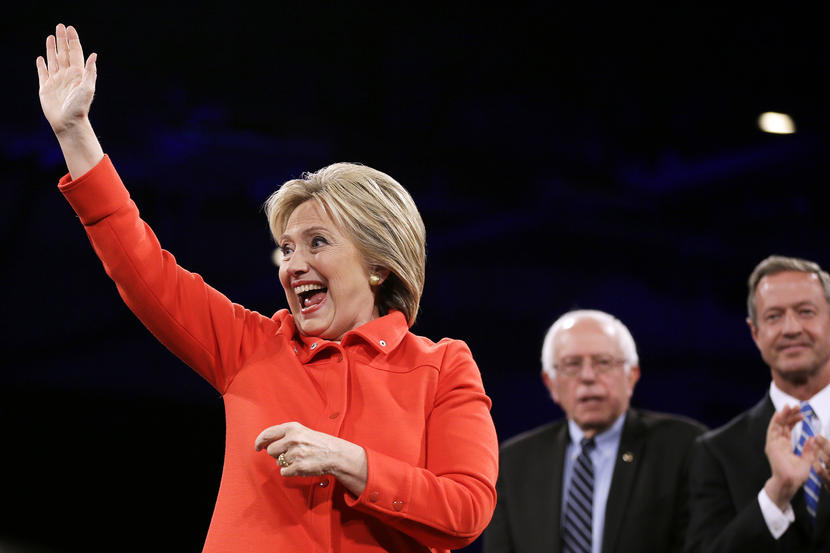
Hillary Clinton has increased her dominant lead within the Democratic Party’s presidential contest, now besting rival Sen. Bernie Sanders by a margin of two to one among primary voters in the latest NBC News/Wall Street Journal poll. But the Democratic front-runner remains unpopular with the general electorate, and fewer than a third of Americans give her high marks for being honest and straightforward.
In the new poll, conducted Oct. 25-29, 62% of Democrats chose Clinton as their top choice to win their party’s presidential nomination, while 31% picked Sanders. Former Maryland governor Martin O’Malley received just 3% support.
That’s up from Clinton’s 25-point lead earlier in October, 58% to 33%.
In this most recent poll, more than eight in 10 Democrats also say they can see themselves supporting Clinton for the nod, while only 61% say the same of the Vermont senator. An overwhelming majority of Democrats — 84% — believe that Clinton is most likely to win the Democratic nomination, versus just 12% who say Sanders is the best bet. And a similar margin — 81% — believe that Clinton has the best chance of any Democratic candidate of winning the White House in 2016.
Despite ascendancy with Democrats — particularly after a strong debate performance, her marathon testimony on Capitol Hill regarding the Benghazi controversy, and Vice President Joe Biden’s decision not to launch a White House bid — Clinton has little to show for her successful news cycles when it comes to the electorate at large.
Americans continue to have a net negative impression of her (40% positive/47% negative) — virtually unchanged from early October. Despite an effort by her campaign to present a softer side, she has not significantly improved her standing with registered voters on measures like “being compassionate enough to understand average people” or “being inspirational and an exciting choice for president.”
And a majority — 53% of registered voters — give her poor marks for “being honest and straightforward,” while just 27% give her a thumbs up.
After her 11-hour testimony before a congressional committee investigating the Benghazi hearings, Clinton does appear to have significantly moved the needle with Democrats and with swing voters when it comes to how they view her handling of the controversy. But the electorate at large still remains skeptical about her response.
Before the hearing, 58% of Democratic primary voters said they were satisfied with Clinton’s response to questions about the Benghazi attacks, while 11% said they were not satisfied and 31% said they did not know enough about the controversy to comment. Now, 72% of Democrats say they’re satisfied and only 8% say they are not satisfied with her answers.
Among swing voters, the share who say they are not satisfied with her response to the Benghazi controversy has plummeted from 84% at the beginning of October to 40% now, although only about a quarter — 23% — are satisfied.
But among all Americans, there is still significant reluctance to put the Benghazi controversy to rest. A third — 30% — say they’re satisfied that Clinton has addressed the issue, while 38% disagree.
One other bright data point for the Clinton campaign: She appears to have convinced more voters that her use of a private email server is not a game-changing issue. In mid-October, a plurality — 47% — said that Clinton’s use of a personal email server was an important factor in determining whether or not they can vote for her for president, while 44% said it was not important. Now, those numbers are almost flipped: 42% call the email flap important to their vote, while 48% say it isn’t an important factor in their decision-making.
The poll of 1,000 adults was conducted Oct. 25-29, 2015. The margin of error for all adults is +/- 3.1%. The margin of error for registered voters is +/- 3.37%, and the margin of error for 400 Democratic primary voters is +/- 4.9%.
- Publish my comments...
- 0 Comments
